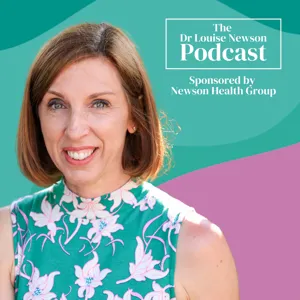236 - Menopause in overlooked communities

This week Dr Louise is joined by Dr Ruth Beesley, a GP who works in central Peterborough and who specialises in working with the homeless, those with alcohol or drug addictions and vulnerable women who engage in sex work.
Dr Ruth talks about the challenges vulnerable groups of women face and how their trauma can act as a barrier to accessing the healthcare they need, both in general and for the menopause. Passionate about reducing health inequalities, Dr Ruth tells us about her outreach clinic and a new mobile bus clinic, both of which allow her to reach more women.
Finally, Dr Ruth shares her learnings on working with hard-to-reach groups and reflects on the three things that have made her job so rewarding:
- Giving women the confidence to believe that they and their health really matters.
- Listening and seeing people's story – people are more than just a set of symptoms, they are a whole person.
- Being part of someone's life at some of their most vulnerable times, and they share some of that vulnerability with you, is a huge privilege as a doctor.
Click here to find out more about Newson Health Group



